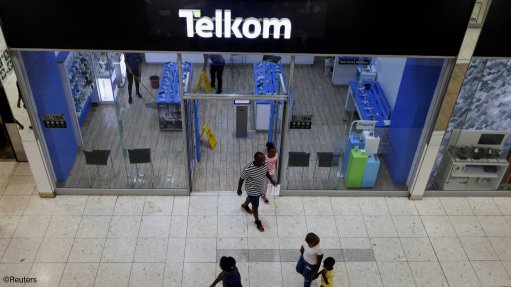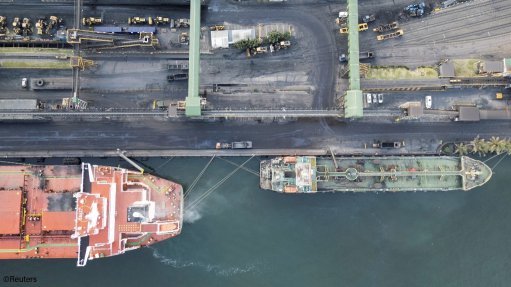Negative things . . .
Let us assume that we have to evaluate the actual quantity of a given thing. Let us say the given thing is the amount of time spent on a highway or the distance spent on a road. We could also consider the amount of time spent delivering some quantity.
Let us say the quantity is electricity. We are required to deliver the quantity of electricity that has been supplied to a given area. This is not too difficult to do. We can measure the electricity and the time and later say it is so much electricity for such a time. We can even break it into a number of times electricity was on for a certain time and the number of times it was on for other times. It’s not too difficult.
A different sort of challenge faces us when we have to determine how much electricity would have been on but was not on. In this case, we can use history as best we can, but if we have no history, the matter is largely a guessing game. All this brings us to what is happening to State-owned electricity utility. Eskom in not supplying electricity to certain parts of the country. Eskom has an obligation and, in fact, a contract to supply power to consumers. Whatever people might think, Eskom cannot just say: “Sorry, not gonna happen today. Bad luck.” That just isn’t going to happen.
Another fact is that Eskom supplies people with electricity and those people supply others with electricity. So, for example, a given city supplies a whole lot of people with electricity and if Eskom does not supply that city with electricity, then certain people don’t get supplied with electricity either. Naturally, subcontractors to Eskom get less income from the people to whom they would be selling electricity, so the whole matter is not as much about money as it would be under the normal sale of electricity.
This can be compensated for in an ideal circumstance; Eskom compensates those people deprived of electricity in a way that does not bankrupt them, and Eskom continues to make itself enough income such that it can continue in business. This is how things used to be when power stations bought power from Eskom and had agreements which were fair and reasonable. All this has changed. Not only that – all this has changed, and nobody is telling the absolute truth about it.
Everybody who sells electricity from Eskom downwards in South Africa has seen a way of making a quick buck. Everybody who is making that quick buck denies they are making that quick buck; in fact, denies that they are making a buck at all. The facts, however, speak for themselves.
It is a simple fact that in January of 2002 Eskom supplied power to the large majority of consumers in South Africa. Here and there, there were consumers who didn’t pay their bills and were disconnected and those who paid their electricity bill received a supply. There was nothing at the beginning of 2003 that suggested a “sudden end of the line” or that power had run out or some other radical issue. But it is a fact that, all of a sudden, the power started being disconnected and is being disconnected with greater and greater frequency for longer periods. This is because some people are making money out of this, and these people are the supporters of Eskom or people who are supported by Eskom.
These people are largely immoral and have no compunction about the disconnecting of the electricity in the hope of making money for themselves. The South African government is not insensitive to this and there has recently been a large conference about what to do. We’ll see what happens, but what has to happen is for the South African electricity supply to become privatised. It is time for us to come to the end of an Eskom which is not privatised and which is largely government supported. I am quietly confident that this is going to happen.
Article Enquiry
Email Article
Save Article
Feedback
To advertise email advertising@creamermedia.co.za or click here
Press Office
Announcements
What's On
Subscribe to improve your user experience...
Option 1 (equivalent of R125 a month):
Receive a weekly copy of Creamer Media's Engineering News & Mining Weekly magazine
(print copy for those in South Africa and e-magazine for those outside of South Africa)
Receive daily email newsletters
Access to full search results
Access archive of magazine back copies
Access to Projects in Progress
Access to ONE Research Report of your choice in PDF format
Option 2 (equivalent of R375 a month):
All benefits from Option 1
PLUS
Access to Creamer Media's Research Channel Africa for ALL Research Reports, in PDF format, on various industrial and mining sectors
including Electricity; Water; Energy Transition; Hydrogen; Roads, Rail and Ports; Coal; Gold; Platinum; Battery Metals; etc.
Already a subscriber?
Forgotten your password?
Receive weekly copy of Creamer Media's Engineering News & Mining Weekly magazine (print copy for those in South Africa and e-magazine for those outside of South Africa)
➕
Recieve daily email newsletters
➕
Access to full search results
➕
Access archive of magazine back copies
➕
Access to Projects in Progress
➕
Access to ONE Research Report of your choice in PDF format
RESEARCH CHANNEL AFRICA
R4500 (equivalent of R375 a month)
SUBSCRIBEAll benefits from Option 1
➕
Access to Creamer Media's Research Channel Africa for ALL Research Reports on various industrial and mining sectors, in PDF format, including on:
Electricity
➕
Water
➕
Energy Transition
➕
Hydrogen
➕
Roads, Rail and Ports
➕
Coal
➕
Gold
➕
Platinum
➕
Battery Metals
➕
etc.
Receive all benefits from Option 1 or Option 2 delivered to numerous people at your company
➕
Multiple User names and Passwords for simultaneous log-ins
➕
Intranet integration access to all in your organisation


















